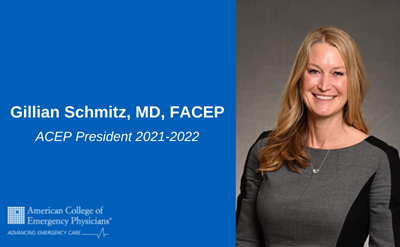WASHINGTON, D.C.—The American College of Emergency Physicians (ACEP) and its Nevada Chapter commend Gov. Brian Sandoval for his veto of AB 382, an out-of-network bill that would have had devastating effects on Nevadans, especially in rural communities by driving doctors out of state and forcing emergency departments to close their doors because of financial reasons. If it became law, AB 382 would have required physicians who practice in emergency departments to accept certain payments decided by insurance companies as "payments in full," giving the upper hand to the health insurance industry and resulting in a mass exodus of emergency and on-call providers in the state, which already has physician shortages.
“This is a victory for Nevada’s emergency patients,” said Bret Frey, MD, FACEP, Legislative Liaison for the Nevada Chapter of ACEP. “This bill was designed to only help the health insurance companies increase their profits and I believe the governor recognized that.”
In his veto letter, Gov. Sandoval said that AB 382 would disrupt the healthcare market and “force hospitals and physicians to accept below market payment for their services. This result [would] likely lead to doctors leaving Nevada, making the State’s critical doctor shortage even worse.”
“This is certainly a relief for patients in Nevada, but the fight is just beginning nationwide,” said Rebecca Parker, MD, FACEP, president of ACEP. “Health insurance companies have a long history of denying care for emergency patients. They are misleading them by selling so-called ‘affordable’ health policies that cover very little, then blaming medical providers for the charges.”
The Governor added that if this bill became law, hospitals and physicians who have already provided services could have been forced to choose between accepting reduced, below market payments or mediate thousands of cases a year, taking away time that should be spent helping patients.
Emergency physicians have proposed solutions such as a recently-passed law in Connecticut which requires the use of an independent and transparent charge database for unexpected care. We are urging policymakers at the state level to implement these type of solutions, which will take patients out of the middle. Emergency physicians and other physicians who provide on-call services in the emergency department would be in-network if insurance companies paid fairly.
Dr. Parker adds that transparency by insurance companies and use of independent databases, such as Fair Health are needed. Payments for emergency visits should be based on usual and customary charges, rather than arbitrary rates set by the insurance industry that don’t even cover the costs of care and stick patients with unfair bills. The insurance companies are exploiting federal law (EMTALA) that mandates that hospital emergency departments see all patients, regardless of their ability to pay.
 American College of Emergency Physicians
American College of Emergency Physicians







